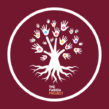Our Story
The Paideia Project was established in February 2020 by Mwenya Mwamba. She comes from a background of underserved school systems in Zambia. To the surprise of some, inspired her instead to be an avid problem-solver in advocacy for improved education opportunities for her peers and herself. Due to a high pupil-to-teacher ratio at her high school and an atomistic learning style, in her final year there, she created interactive visual aids using recycled material for effective learning and to engage her peers in conversations regarding the climate crisis that made their future uncertain. After noticing its impact, she jumped on the opportunity to pitch this innovation during their regional science fair and attained a prize for it in the category of school apparatus and visual aids.
Fast-forward to her tertiary education, the inefficiencies in the university’s curriculum were no different, with a focus on academic brilliance, but with inadequate translation of their learning material to suit learners’ assimilation abilities. Their learning was even more challenging during the COVID-19 pandemic because of their university’s poor interactive virtual learning resources. This experience was demotivating and put a strain on her mental health, and she struggled to transition into the actuarial science program at her university.
While struggling to find her life’s purpose, she had an epiphany of how her search for a holistic approach to learning in her educational background, was intertwined with her high school innovation. She pitched this idea to her parents, how it was the key to giving her a sense of purpose and its potential to create a mindset shift and change education systems in her community. This is how the Paideia Project was born in February 2020. The Paideia Project was registered as a Non-Governmental Organization (NGO) with the Ministry of Community Development and Social Services in December 2022.
Our overall objective is to provide comprehensive educational opportunities to benefit underserved schools and help address the high pupil-to-teacher ratio caused by high enrolment rates, so that learners have an equal fighting opportunity that comes with equitable and quality education.
